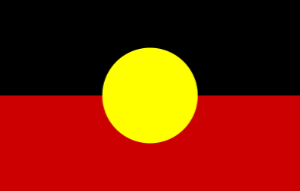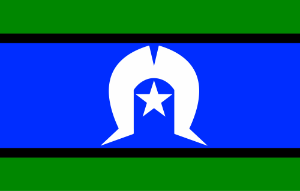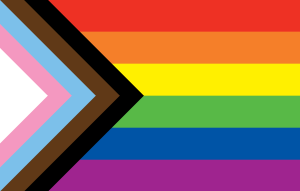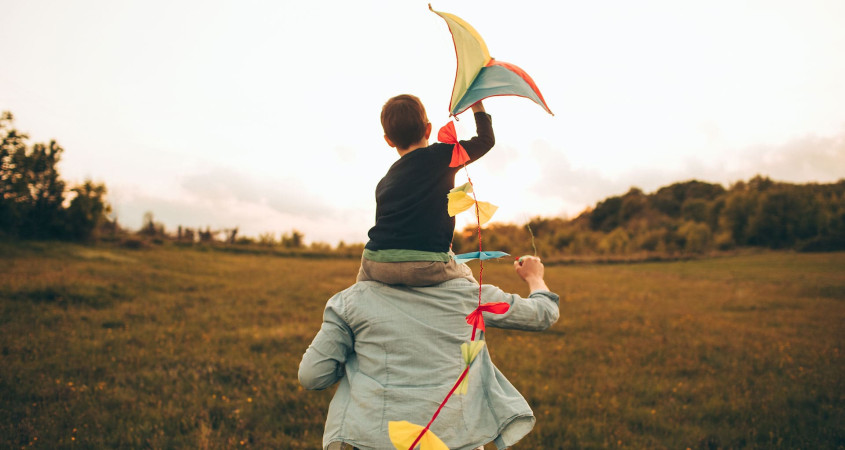Reflections on Father’s Day
Father’s Day is another special celebratory day in our country’s social calendar. For many, it’s a time to give thanks to our fathers for helping to give us life, and if we are fortunate, for contributing to the creation of a safe and loving home that enables us to fulfil our potential.
I am one of those fortunate people. A ‘hands-on dad’, my father made my sisters and me feel safe and in no doubt that we were loved. He was interested in and involved in whatever we did and modelled the life lessons he thought were important. He taught us to respect all living things, to enjoy nature, to read widely, to laugh at ourselves and to love deeply. There was a lot of laughter in our home. I am also fortunate to have had a living father until I reached young adulthood and that he got to meet my own children.
As I think of Father’s Day this year, my heart aches for those whose experience has been very different. I picture with compassion the faces of the beautiful children who receive bereavement care at the NCCG after the death of their relatively young fathers, many from suicide, cancer or other medical conditions or killed in vehicle or work accidents.
I think of the children whose fathers are in prison, those whose fathers were abusive, indifferent, or who abandoned them and those who have never known their birth fathers.
My thoughts then drift to fathers who are estranged from their children, those whose relationship has changed dramatically as a result of separation or divorce, incarceration or changed work conditions and of course all the dads who grieve deeply for children who have died. Their grief is not always recognised or understood and is often unsupported.
I think too of the dads living with remorse or regret, those who wish they had been better at being the fathers their children needed. I think of those who feel as if they have failed as men, because they have been unable to father biological children and those for whom illness, injury or financial difficulties have made it impossible for them to give their children the quality of life of which they had dreamed. For all of them I hope we feel and express deep compassion.
I also want this to be a Father’s Day around which we gain a better understanding of what it means to good men to be a father, so that we can demonstrate our appreciation of their value in our lives and to the community. As a woman, I can’t pretend to understand what it means to be a father, so I have asked men of diverse ages to express what being a father means to them and I include excerpts from their responses below.
“Being a father to me means being someone my children can trust, someone who is compassionate and supportive, not jealous or competitive.”
C.M. (Young dad with small children)
“Fatherhood is the greatest and most joyful purpose of my life. It means being a carer, guardian, teacher, supporter, servant, leader, friend and so much more.”
C.W. (Father of young adults)
“Fatherhood should not be entered into lightly or self-indulgently. It’s a huge responsibility, an experience that changes your world in unfathomable ways as a child initially becomes the centre of your universe, and, for a short time, you are the centre of theirs. Your role is to love but not smother, to teach but not preach, to protect but not prevent them from facing and learning how to overcome adversity, to establish boundaries, model moral behaviour and encourage self-expression. Raising a child to young adulthood is the most challenging and ultimately the most rewarding life role.”
P.R. (Father of a young adult)
“Fatherhood is like being a circus performer – juggling responsibilities, walking a tightrope between discipline and laughter, and occasionally being shot out of a cannon by your kids’ wild antics. It’s a thrilling and hilarious adventure.”
J.S. (Father of adult children and a grandfather)
“My adopted children, and now their children, have given my life meaning and purpose and have filled my heart from day one.”
J.B (Father and grandfather)
“My alcoholic father wasn’t a good role model and I’ve tried hard every day to be a better father, grandfather and great grandfather than the fathering I experienced as a child. I often feel unworthy of the love these special people give me, memories of every moment spent with them are treasures that warm my old heart.”
B.L. (Grandfather of young great grandchildren)
Good men enhance the quality of family life and contribute in a myriad of invaluable ways to the wellbeing of the local, national, and global community. On Father’s Day we give them our heartfelt thanks. As we who are fortunate celebrate in simple or more elaborate ways, I hope we also remember all the fathers and children whose hearts ache, an ache that may be intensified as they witness or imagine other families enjoying the day.
We can all do something tangible, large or small, in recognition of their distress, like making a donation to the NCCG, so that counsellors there can continue to enable grieving children and their fatherless families learn how to live fulfilling lives despite the empty places in their hearts.
If you are one of those children or a father whose heartache is intensified on Father’s Day, after the death of a father or child, help is available. Please reach out to the team at the NCCG by phone 1300 654 556, email [email protected] or use their free email outreach service at [email protected]
An NCCG Blog
By Dianne McKissock OAM
Co-founder, National Centre for Childhood Grief
August 2023






